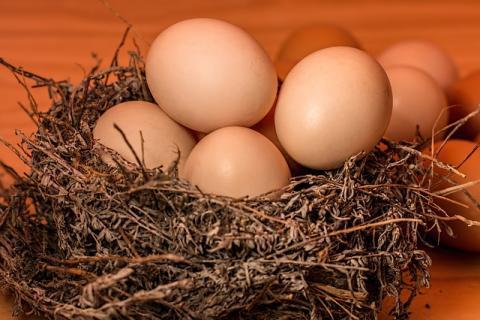
I envy the women who are lucky enough to experience a pain-free menstrual cycle each month and essentially go about their daily lives with little to no interruption as their monthly moon waxes and wanes.
My experience has been quite the opposite for as long as I can remember.
From the time of my very first menstrual cycle, I have experienced a number of unpleasant symptoms: a heavy flow, menstrual cramps (at times debilitating), lower back pain, fatigue, high emotionality/hypersensitivity, irritability, sleep disturbance, overheating, water retention, digestive issues and bloating. It has not been easy.
That said, over the years I have worked with many health practitioners to find ways to work with my menstrual cycle, and I have gathered quite an arsenal of self-care practices to help mitigate my monthly symptoms. I have enough remedies, supplements, and recommendations to fill a book by now, but for the sake of this article I will share what I consider to be the top five remedies that have helped me:
1. Rest/Clear Your Calendar
One thing I have learned over the years is that I simply need to clear my schedule and rest during my menstrual cycle. While sometimes this may feel inconvenient, in the long run, it is worth it. I have learned that it is necessary to give my body the rest that it needs at this time. Menstruation is a time of depletion in the body, so extra rest is needed. Not only does resting give my body what it needs, but it also decreases my symptoms, which to me is the true indicator that rest is the right thing.
When I really commit and give myself permission to rest during my cycle, I actually can enjoy this experience of self-care and take in the nourishment that is intended. I used to think of my cycle as “getting in the way” of me living my life, but over time, I have come to realize that listening to my body during this time is an important aspect of living my life fully, and if I really listen to what my body needs, the symptoms are less, my stress levels are lower during my cycle and during the rest of the month, and my sleep and sense of overall peace improve.
2. A Chinese Herbal Formula: Free and Easy Wanderer
A majority of symptoms that women experience during their menstrual cycle are related to liver stagnation. From a Chinese Medicine perspective, the liver is in charge of the flow of qi and blood in the body. Menstrual problems are a result of “liver qi constraint” or “liver qi stagnation.”
Free and Easy Wanderer or “Xiao Yao Wan” is a Chinese herb formula that I take every month before my menstrual cycle begins. I take the teapill form (there are other forms like capsules or tea) for five days, three times a day. This formula has significantly reduced my PMS and helps with the cycle itself once bleeding begins. It is best to consult a Chinese Medicine practitioner or herbalist for recommendations around what will work best for you.
3. Magnesium
Magnesium is a wonderful supplement that helps greatly with menstrual cramps, not to mention sleep – which of course helps with everything. Magnesium levels fluctuate throughout the menstrual cycle, and the higher the estrogen or progesterone levels, the lower your magnesium. During the second half of the menstrual cycle, both estrogen and progesterone levels become elevated, and as a result, magnesium levels drop, which leads to PMS-related symptoms such as headaches, bloating, low blood sugar, menstrual cramps, dizziness, water retention and sugar cravings.
While there are certainly foods high in magnesium (chocolate is the highest, hence the cycle-related chocolate cravings!), if your symptoms are severe, taking magnesium supplements may be more effective. There are many types of magnesium supplements to take, and one that I have found that works really well for me is “Natural Calm,” a fizzy drink supplement. This supplement can be taken daily during PMS and menstruation, or even throughout the entire month—the only precaution being to follow the directions on the bottle to increase dosage gradually, as magnesium can cause stomach upset if taken in too high of a dose.
4. Exercise
Exercise is crucial. Remember how important the easy flow and function of the liver is for a “free and easy” menstrual cycle? Well, exercise helps with PMS and menstrual symptoms because when we move our body, we move stagnant qi and increase the smooth function of the liver. Not to mention there is a great deal of hormonal balance that takes place when we exercise, as well as positive endorphins and overall circulation of the body.
I try to exercise regularly throughout the month, of course, but I always make sure that during the week before my period, I am getting daily exercise. That said, this is probably not the time to push yourself your hardest athletically speaking—many cis-women are particularly tired during their premenstrual week, but light exercise every day is good for moving liver qi. In some cases, the tiredness that women feel during this time may be a result of liver stagnation, and they may wind up feeling better after some exercise. Always listen to your body, of course, if rest is what is truly needed – but even if it is as simple and light as a walk, movement and circulation will help with irritability and will help to make the actual menstrual cycle easier.
That said—I specifically do not exercise during my menstrual cycle, or at least not when my cycle is at its heaviest. (See item number one above about the importance of rest.)
5. Acupuncture
Acupuncture has served me for so many reasons, and one of the biggest ones is symptoms around my menstrual cycle. For all of the reasons mentioned above—exercise and liver stagnation—acupuncture works to help move stagnant liver qi and balance the hormones in the body. I highly, highly recommend it.
Between these five remedies (and more), my menstrual cycle has improved dramatically over the years. My symptoms have become less and less over time, and in the past two months, I have actually felt a true absence of symptoms. It felt like a miracle. That said, it is still important to rest, even when you experience an improvement in symptoms.
And remember—while all of these remedies may help you, it may also take some time. These are likely long-term patterns of your body that you are seeking to change, so it is important to be patient. With true commitment and dedication to taking care of yourself during your menstrual cycle, you will see the long-term benefits, and you, too, can experience a free and easy menstrual cycle.








